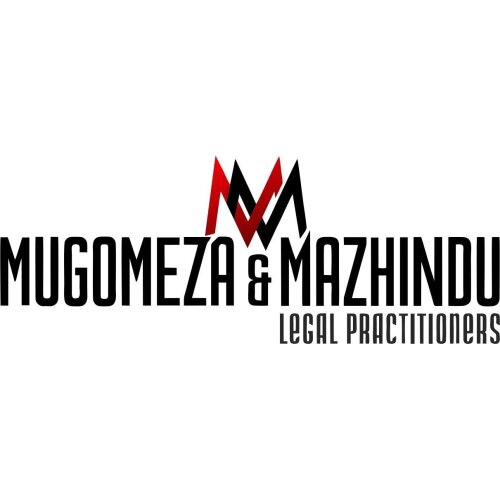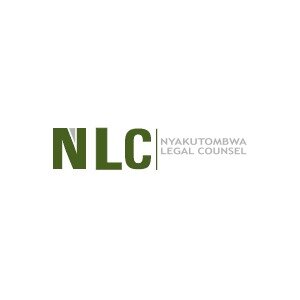Best Energy, Environment & ESG Lawyers in Zimbabwe
Share your needs with us, get contacted by law firms.
Free. Takes 2 min.
Or refine your search by selecting a city:
List of the best lawyers in Zimbabwe
About Energy, Environment & ESG Law in Zimbabwe
Energy, Environment & ESG (Environmental, Social, and Governance) law in Zimbabwe refers to the body of legislation, regulations, and policies that govern the management of natural resources, energy production and distribution, environmental protection, as well as corporate sustainability standards. These legal frameworks are designed to promote responsible resource use, reduce environmental harm, and encourage businesses to adhere to sustainable and ethical practices. Zimbabwe has a rich reserve of natural resources, making these laws crucial for balancing economic development with environmental conservation and social responsibility.
Why You May Need a Lawyer
Legal advice in Energy, Environment & ESG is often necessary for individuals, companies, and community groups who interact with Zimbabwe's natural resources or are engaged in energy projects. Common situations where legal help may be required include:
- Applying for environmental impact assessment (EIA) certificates or licenses
- Dealing with disputes or claims regarding land use, pollution, or resource extraction
- Navigating regulatory requirements for starting or expanding mining, energy, or agricultural projects
- Ensuring compliance with health, safety, and environmental regulations
- Developing renewable energy projects and negotiating with government authorities
- Addressing community concerns about corporate social responsibility or environmental degradation
- Responding to investigations or enforcement actions by environmental agencies
- Drafting and reviewing contracts involving energy supply, land acquisition, or joint ventures in the sector
Local Laws Overview
Key laws and regulations govern how energy resources are developed, how the environment is protected, and how companies must behave regarding sustainability and corporate responsibility. Some of the most relevant local laws and authorities in Zimbabwe include:
- The Environmental Management Act [Chapter 20:27] - Provides a framework for environmental protection and management, including EIAs, waste management, and pollution control
- The Mines and Minerals Act [Chapter 21:05] - Regulates mining activities and related environmental obligations
- The Electricity Act [Chapter 13:19] - Governs the generation, transmission, and distribution of electricity
- The Energy Regulatory Authority Act [Chapter 13:23] - Establishes the Zimbabwe Energy Regulatory Authority (ZERA), responsible for overseeing energy sector regulation
- The Water Act [Chapter 20:24] - Deals with water use, pollution, and conservation
- Other relevant policies include the National Renewable Energy Policy and the National Climate Policy, which encourage sustainable practices and renewable energy adoption
Compliance with these laws is not just a legal obligation but can also impact a project's success, reputation, and access to financing, especially in an era of growing focus on ESG standards.
Frequently Asked Questions
What is an Environmental Impact Assessment (EIA), and when is it required?
An EIA is a process to evaluate the potential environmental effects of a project before it begins. In Zimbabwe, all projects with a significant potential environmental impact, such as mining, large-scale construction, or energy generation, require EIA approval from the Environmental Management Agency (EMA).
Who is responsible for environmental compliance in a company?
The company itself holds primary responsibility for compliance, usually managed through designated officers or departments. However, company directors and managers can also be held personally liable in some cases.
What are the main penalties for breaching environmental law?
Penalties can include fines, closure of operations, imprisonment, and requirements to remedy environmental harm. Enforcement is carried out by agencies such as EMA.
How do I apply for a mining license in Zimbabwe?
Applications are made through the Ministry of Mines and Mining Development. Approval processes include environmental screening and may involve an EIA and public consultation.
What does ESG mean for Zimbabwean businesses?
ESG refers to Environmental, Social, and Governance criteria that measure a company's ethical impact and sustainability practices. Investors and regulators are increasingly requiring businesses to demonstrate strong ESG performance.
Are there incentives for developing renewable energy?
Yes, Zimbabwe has policies and incentives designed to promote investment in solar, wind, and other renewables. These include tax breaks, guaranteed tariffs, and funding opportunities.
Can communities challenge environmental decisions?
Affected communities have the right to participate in EIA processes, raise objections, and challenge approvals in court or through administrative review.
What are common legal issues in energy projects?
Common issues include land rights, permitting delays, regulatory compliance, contract disputes, and community opposition related to environmental and social impact.
How are water rights regulated in Zimbabwe?
The Water Act regulates the use of surface and groundwater resources. Users may need permits and must comply with pollution control and conservation measures.
Do foreign investors need local partners for energy or mining projects?
Foreign participation is allowed, though certain sectors require compliance with indigenization policies or prefer joint ventures. Legal advice is critical for structuring agreements to meet all requirements.
Additional Resources
Individuals and companies seeking information or assistance can consult the following resources:
- Environmental Management Agency (EMA) - for environmental licensing, compliance, and complaints
- Zimbabwe Energy Regulatory Authority (ZERA) - for energy sector regulation
- Ministry of Environment, Climate, Tourism and Hospitality Industry - for environmental policies
- Ministry of Mines and Mining Development - for mining licenses and regulations
- Zimbabwe Lawyers for Human Rights - for legal advocacy and advice
- Zimbabwe Investment and Development Agency (ZIDA) - for information on investing in energy and natural resources
Next Steps
If you need legal assistance with an Energy, Environment, or ESG matter in Zimbabwe, start by clearly defining your issue or goal. Gather relevant documents such as permits, contracts, and communications with authorities. Next, consult a lawyer who specializes in these areas for advice on your obligations, risks, and options. Many law firms offer initial consultations, and some NGOs may provide support for community or environmental matters. Staying informed about regulatory changes and seeking professional guidance early can help prevent costly legal problems and ensure your project or activity aligns with Zimbabwe’s legal and sustainability requirements.
Lawzana helps you find the best lawyers and law firms in Zimbabwe through a curated and pre-screened list of qualified legal professionals. Our platform offers rankings and detailed profiles of attorneys and law firms, allowing you to compare based on practice areas, including Energy, Environment & ESG, experience, and client feedback.
Each profile includes a description of the firm's areas of practice, client reviews, team members and partners, year of establishment, spoken languages, office locations, contact information, social media presence, and any published articles or resources. Most firms on our platform speak English and are experienced in both local and international legal matters.
Get a quote from top-rated law firms in Zimbabwe — quickly, securely, and without unnecessary hassle.
Disclaimer:
The information provided on this page is for general informational purposes only and does not constitute legal advice. While we strive to ensure the accuracy and relevance of the content, legal information may change over time, and interpretations of the law can vary. You should always consult with a qualified legal professional for advice specific to your situation.
We disclaim all liability for actions taken or not taken based on the content of this page. If you believe any information is incorrect or outdated, please contact us, and we will review and update it where appropriate.
Browse energy, environment & esg law firms by service in Zimbabwe
Zimbabwe Attorneys in related practice areas.
Browse energy, environment & esg law firms by city in Zimbabwe
Refine your search by selecting a city.
















